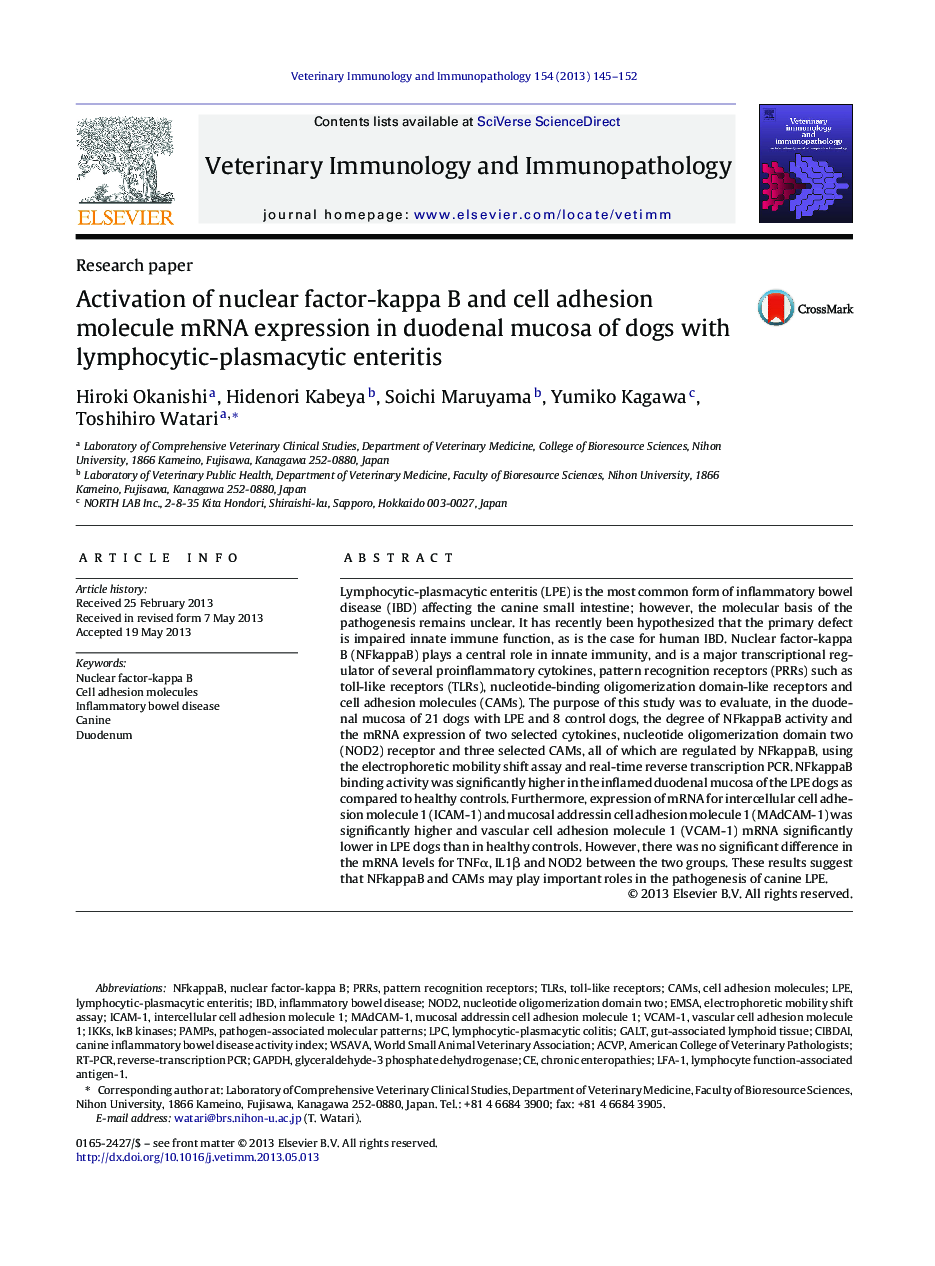| Article ID | Journal | Published Year | Pages | File Type |
|---|---|---|---|---|
| 2461766 | Veterinary Immunology and Immunopathology | 2013 | 8 Pages |
Lymphocytic-plasmacytic enteritis (LPE) is the most common form of inflammatory bowel disease (IBD) affecting the canine small intestine; however, the molecular basis of the pathogenesis remains unclear. It has recently been hypothesized that the primary defect is impaired innate immune function, as is the case for human IBD. Nuclear factor-kappa B (NFkappaB) plays a central role in innate immunity, and is a major transcriptional regulator of several proinflammatory cytokines, pattern recognition receptors (PRRs) such as toll-like receptors (TLRs), nucleotide-binding oligomerization domain-like receptors and cell adhesion molecules (CAMs). The purpose of this study was to evaluate, in the duodenal mucosa of 21 dogs with LPE and 8 control dogs, the degree of NFkappaB activity and the mRNA expression of two selected cytokines, nucleotide oligomerization domain two (NOD2) receptor and three selected CAMs, all of which are regulated by NFkappaB, using the electrophoretic mobility shift assay and real-time reverse transcription PCR. NFkappaB binding activity was significantly higher in the inflamed duodenal mucosa of the LPE dogs as compared to healthy controls. Furthermore, expression of mRNA for intercellular cell adhesion molecule 1 (ICAM-1) and mucosal addressin cell adhesion molecule 1 (MAdCAM-1) was significantly higher and vascular cell adhesion molecule 1 (VCAM-1) mRNA significantly lower in LPE dogs than in healthy controls. However, there was no significant difference in the mRNA levels for TNFα, IL1β and NOD2 between the two groups. These results suggest that NFkappaB and CAMs may play important roles in the pathogenesis of canine LPE.
